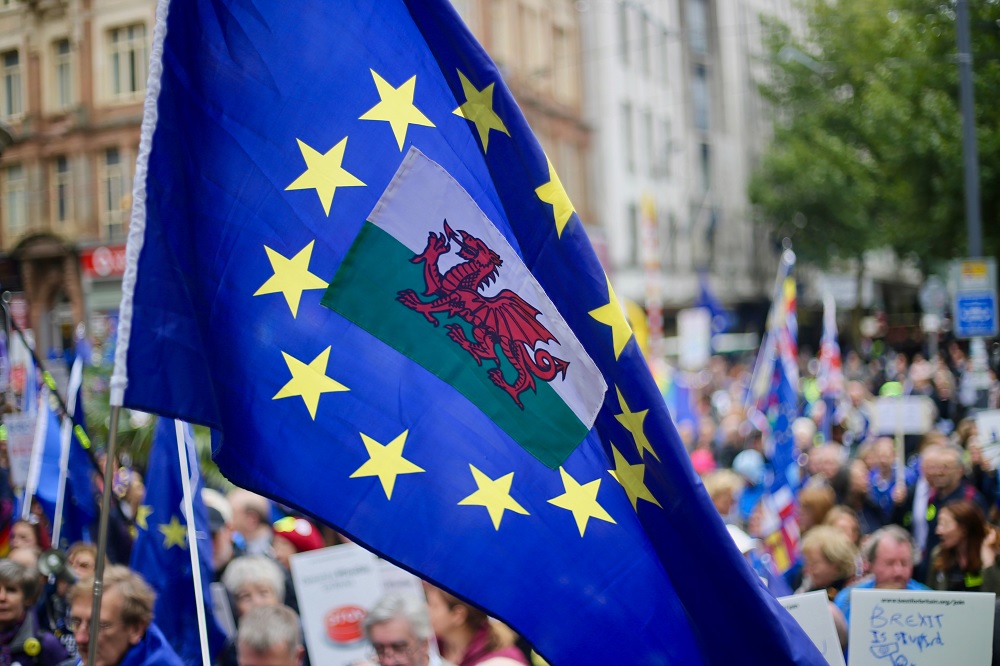Why this is a bad Brexit deal – and what we need to do to limit the damage

Jane Dodds, leader of the Welsh Liberal Democrats
So, in the end, there was a deal, even if it was an agonisingly thin deal and about as thin a deal as there could be.
At least Welsh businesses and Welsh farmers are spared for the moment the threat of tariffs on the goods they export. Though, it looks likely that prices in the shops will rise, as the cost of Brexit bureaucracy falls on the consumer, at least Welsh shoppers do not have to face further increases in the cost of the food they buy as a result of tariffs.
But this is still a bad deal. Wales, like the rest of the UK, will still be poorer, weaker, and have less, not more control over its own destiny.
We will still face the queues at the border, the bureaucracy and the restriction of our rights as citizens when travelling to Europe. Welsh farmers selling lamb to the EU will still be required to fill in more paperwork than their competitors in New Zealand.
The Conservatives, however much they talk of levelling up, have no intention of honouring their promise that Wales, a net beneficiary of EU funding, would not lose out.
This deal will make recovery from Covid much harder, both here in Wales and across the UK as a whole.
Diminished
This deal was a sovereignty-first deal over everything else, and will dramatically diminish our economic, educational and human opportunities.
The UK is being taken out of Erasmus, denying thousands of young people – and not just students; Erasmus has offered life-changing opportunities to young people from some of the most deprived areas of Wales who would never otherwise have had such experiences.
First, Wales must redouble its efforts to be outward-looking. Outside the Single Market and Customs Union it will be that much harder to attract investment.
It means that we need to look to our own businesses, especially small businesses, to provide the engine for recovery, but it also means that we need to engage better with the wider world and ensure that we can offer the skills and knowledge base to encourage investment here.
That means the Welsh Government should work to find ways in which Wales can rejoin Erasmus. Not just because of the opportunities it will offer to young Welsh people, but because of its importance to the higher education sector here in Wales.
Second, we need to understand that this deal is not the end of the Brexit process. Important issues remain to be negotiated, such as access to EU markets for the service sector, data issues (on which the deal provides a grace period, not a long-term solution), and mutual recognition of qualifications.
The deal requires the EU and UK to engage with each other. The list of working groups and committees also that have been created to manage the relationship runs to six pages. How we manage those relationships will determine how far we can limit the damage of Brexit.
Co-operation
So, the question now is whether the UK regards the deal as the starting point, rather than the limit, of our new relationship with the EU.
We need to opt for the former. And we can only do that if we are honest in sticking to the principles underpinning this deal and the Withdrawal Agreement that preceded it; high environmental, consumer and employment standards.
I am convinced that as soon as the British people recognise how thin this deal is, they will be looking at how to improve it.
This deal has settled very little about the relationship between the UK and the EU and we need to continue to scrutinise how it applies to Wales.
There is one fundamental truth that no Brexit deal will ever change. The biggest challenges facing the world are global, whether in the form of global pandemics or in dealing with the greatest threat of all, climate change.
Climate change does not recognise national borders. Therefore, we need to co-operate globally to address it. The tragedy of Brexit is that it divides and isolates.
To recover from Covid and to deal with climate change, we need more global cooperation, not less.
Support our Nation today
For the price of a cup of coffee a month you can help us create an independent, not-for-profit, national news service for the people of Wales, by the people of Wales.






